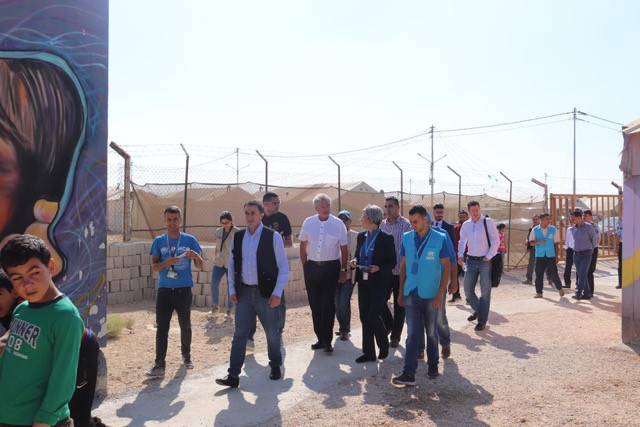Opened at the end of April 2014, in anticipation of continued flows of refugees crossing the Syrian border to Jordan, the Azraq camp has a capacity to house 55,000 people. According to the United Nations Refugee Agency (UNHCR) in June a total of 35,709 Syrian refugees were being housed in 8,952 shelters. 60% of the Syrian refugees are children, with 22% under five years old. 240 of the children are classified as unaccompanied and separated.
Jean Asselborn met with UNHCR officials who told him of the extremely difficult living conditions in Syria and explained the urgent need for additional funding to help Syrian refugees.
The minister also visited a project supported by Luxembourg NGO CARE that is co-financed by Luxembourg’s directorate for development cooperation and humanitarian affairs. CARE Community Centres provide what the NGO calls “safe spaces” for psychosocial support for children, women and men. CARE schools and play tents are used daily by more than 170 children. UNHCR figures show that of 12,703 school age children in the camp, 10,287 are enrolled in formal school, 420 in Kindergarten and 3,639 in Learning Support Services.
CARE also provides libraries, sports facilities and speech groups for both children and adults, trains volunteers and promotes adult conflict resolution skills through awareness of conscious mediation.
Later in the day, Asselborn met with his Jordanian counterpart Ayman Safadi, whom he briefed on his visit to Palestine the previous day. Asselborn and Safadi were adamant that the statements made by Israeli prime minister Benjamin Netanyahu on annexing the West Bank were unacceptable and contrary to international law. Asselborn reiterated his opinion that any annexation “would mean the end of the peace process and efforts to resolve the Israeli-Palestinian conflict on the basis of the two-state solution”.
